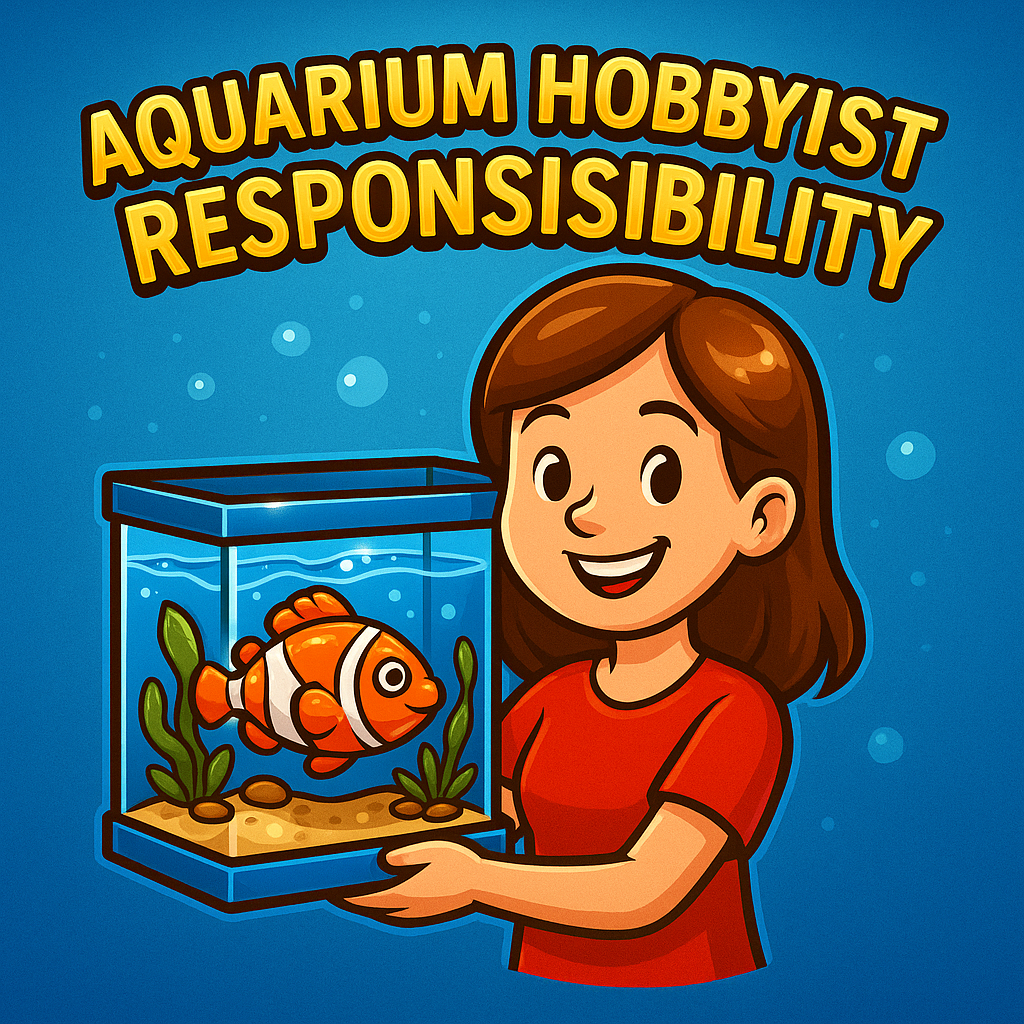Technical Guide: Hobbyist Responsibility in Preventing Invasive Species
Technical Guide: Hobbyist Responsibility in Preventing Invasive Species
⚠️ Why Invasive Species Are Dangerous
- 🐟 Ecological imbalance: Non-native fish prey on or outcompete natives.
- 🌿 Hydrological damage: Fast-growing plants clog waterways and reduce oxygen.
- 🦠 Pathogen transmission: Parasites, viruses, and fungi from tanks can infect wild fish.
- 💰 Economic impact: Invasive eradication and control cost billions globally.
- 🏛️ Regulatory consequences: The more invasive introductions occur, the more governments will ban species from import, trade, and hobby use.
🧑🔬 Hobbyist Responsibilities (Technical Protocols)
1. 🚫 Never Release Into the Wild
- Unwanted fish/plants must never be dumped into lakes, rivers, ponds, or storm drains.
- Even one gravid female fish or a small plant cutting can start an invasion.
2. 🌪️ Extreme Weather Awareness
- During hurricanes, floods, or tornados, fish farms and outdoor ponds can be destroyed, releasing thousands of fish into local ecosystems.
- Each incident adds pressure for stricter laws.
- 🛑 Hobbyists releasing fish + farm escapes = government bans on more species.
3. ♻️ Proper Rehoming Channels
- 🛒 Retailers: Some accept returns or buy-backs.
- 👥 Aquarium clubs/forums: Trade or rehome species responsibly.
- 🏛️ Institutions: Schools, zoos, or aquariums may take specimens.
4. 🧼 Decontamination & Biosecurity
- 🧪 Nets, siphons, buckets: 10% bleach solution for 10–15 min → rinse with dechlorinated water.
- 🔥 Gravel & decor: Bake at 200°F (93°C) for 1 hr or freeze 24+ hrs before disposal.
- 💧 Tank water: Neutralize with dechlorinator + potassium permanganate before drain disposal.
- ❌ Never dump outdoors.
5. 📚 Research & Compliance
- 🗺️ Check local laws (USDA APHIS, Fish & Wildlife).
- 🔍 Avoid banned/invasive species (e.g., snakeheads, zebra mussels, water hyacinth).
- 🐌 Inspect new plants for hitchhiker snails, duckweed, or algae.
6. 🪦 Humane & Safe Disposal
- 🧊 Fish: Sedate with clove oil (0.4 mL/L) → freeze in water.
- 🌿 Plants: Dry thoroughly, seal in plastic, discard.
- 🐌 Snails/inverts: Freeze or crush → bag → trash.
🔍 Technical Ethics Checklist
- ✅ Disinfect equipment before outdoor use.
- ✅ Treat biological material like a biohazard.
- ✅ Rehome or surrender unwanted species.
- ❌ Never flush or release.
- ❌ Never dump tank water outside.
🧭 Bottom Line
- The more hobbyists release fish into the wild — whether on purpose or by accident — and the more storms tear through fish farms, the more likely governments will ban entire categories of fish to protect ecosystems. 🚫🐠
- Responsible fishkeepers are the first line of defense in preserving both the environment and the future of the hobby. 🌍

Impulsada por Lightspeed
Mostrar precios en:USD